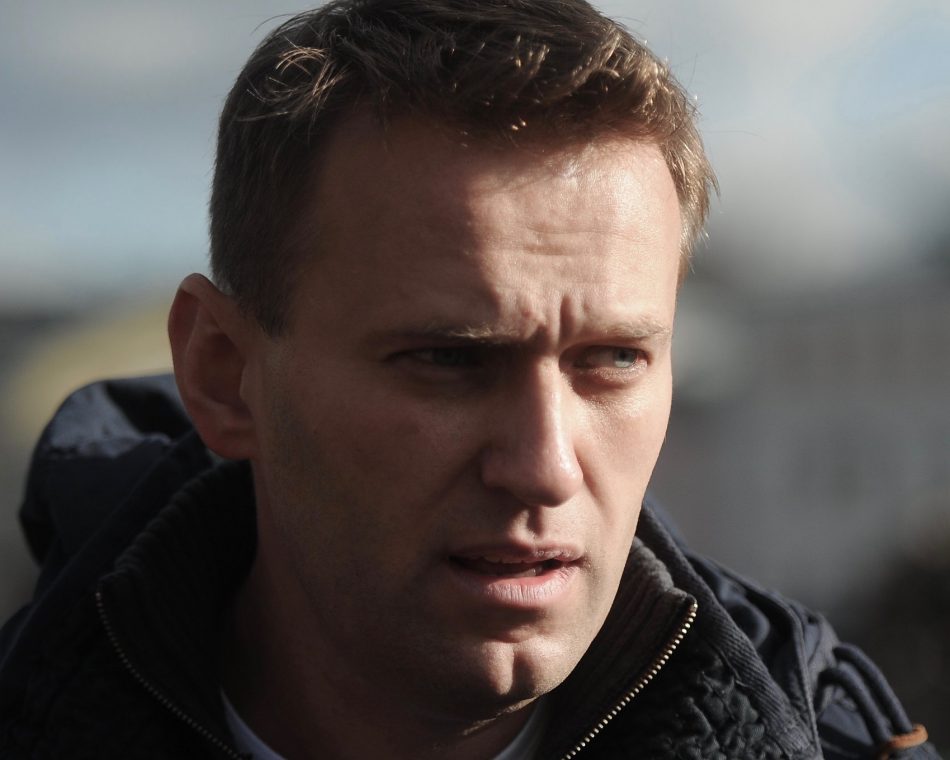Two U.N. human rights experts on Monday called for an international and independent investigation into the nearly fatal poisoning of Russian opposition leader Alexei Navalny, an assassination attempt they blamed on Russia as a "sinister" move to silence a prominent Kremlin critic.
The investigation is needed to determine who should be held responsible for poisoning Navalny with a Soviet-era nerve agent and to send a message that intimidation of government critics will not be tolerated by the international community, according to the two United Nations special rapporteurs, or investigators.
In an analysis of samples taken from Navalny, the Organization for the Prohibition of Chemical Weapons, or OPCW, concluded last October in a report to Germany that he was attacked with a military-grade nerve agent.
OPCW's report confirmed lab results from Germany, Sweden and France that Navalny, who investigates corruption and is an outspoken critic of Russian President Vladimir Putin, was attacked with a Novichok chemical agent on August 20, 2020 during a flight in Russia.
“We believe that poisoning Mr. Navalny with Novichok might have been deliberately carried out to send a clear, sinister warning that this would be the fate of anyone who would criticize and oppose the government. Novichok was precisely chosen to cause fear,” the two special rapporteurs — Agnès Callamard, who investigates extrajudicial, summary or arbitrary executions, and Irene Khan, who looks into violations of freedom of opinion and expression — said.
They also made public a 39-page detailed letter they sent to Russian authorities on Dec. 30, at the conclusion of a four-month investigation into the poisoning. The letter had been kept private due to a 60-day confidentiality agreement.
Callamard and Khan, two among dozens of investigators and working groups assigned by the U.N. Human Rights Council at Geneva to examine specific human rights themes and countriesf, said only a government would have been able to get Novichok and develop it into such "a novel form" of the lethal nerve agent.
"The use of chemical weapons as a means of extrajudicially killing dissidents, journalists, political activists or others, and as a means of terror, compounds this assault on the international order," they concluded.
"An international investigation into the sinister poisoning of #AlexeiNavalny must remain a priority" – @AgnesCallamard & @Irenekhan say there is urgent need to find truth about what happened to the Russian opposition leader and to ensure accountability 👉 https://t.co/nEwxp1wY2t pic.twitter.com/uj5puUd1QH
— UN Special Procedures (@UN_SPExperts) March 1, 2021
'A matter of urgency'
As the international organization that investigates chemical weapons attacks, OPCW was pulled into the controversy because the use of Novichok would violate Russia’s commitments under the 1997 Chemical Weapons Convention.
The two special rapporteurs said the attempt to kill Navalny with the nerve agent violated international law against arbitrary killings and, due to the pain and suffering he went through before recovering, may also amount to "a form of torture or other cruel, inhuman or degrading treatment or punishment."
It also fits, they said, with a decades-long pattern of arbitrary killings and attempted murders of Russian citizens and government critics within Russia and outside its borders.
“The government cannot escape its obligations under international human rights law by denying responsibility for the act itself," they said.
Navalny returned to Russia in January, after five months of recovery in a Berlin hospital and despite the threat of arrest by Russian authorities. He was indeed arrested and, in a show trial, convicted of violating parole by staying abroad.
Sentenced to more than two years in prison, Navalny was ordered to serve out his sentence in a notoriously rough penal colony, Russian news organizations said.
The European Union imposed sanctions on Monday against four Russian officials involved in Navalny's case using a new law that targets human rights activists worldwide. E.U. officials previously sanctioned six Russians and a government research center due to the poisoning.
Callamard and Khan, who are also supported by the Geneva-based Office of the U.N. High Commissioner for Human Rights, said an international investigation "should be carried out as a matter of urgency" particularly now that Navalny is headed for prison where he will suffer harsh treatment.
"We also remind the Russian government," they said, "that it is responsible for the care and protection of Mr. Navalny in prison and that it shall be held responsible for any harm that may befall him. We call for Mr. Navalny’s immediate release.”
The head of Russia's Federal Penitentiary Service, Alexander Kalashnikov, told journalists last week that Navalny would be held under "completely adequate conditions" where he would safe and put to work in mostly textiles and timber.
"I guarantee that there is no threat to health or life," Kalashnikov was quoted by Tass as saying.









